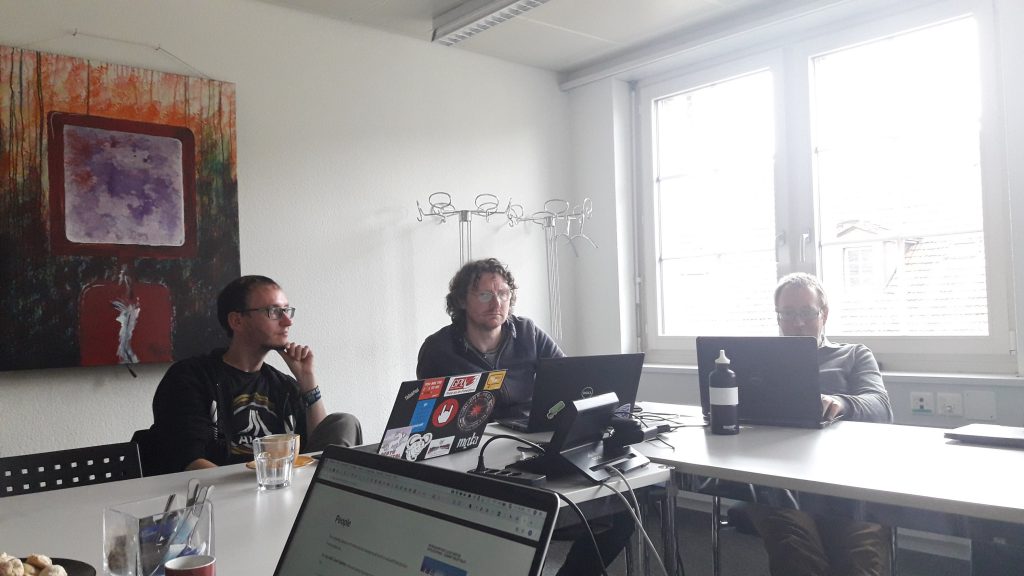Adaptivity and adaptability are key characteristics of modern software to cope with sometimes unpredictable changes in the environment including system and user behaviour. Modern cloud-native architectures for instance foresee the case-by-case handling of decisions – e.g. to decide whether using a provider database or hosting one yourself – at the application or workflow level based on knowledge and rules or emergent behaviour. In workflows representing data flows from connected devices, the (self-)adaptivity should be modelled and supported by context-aware systems.
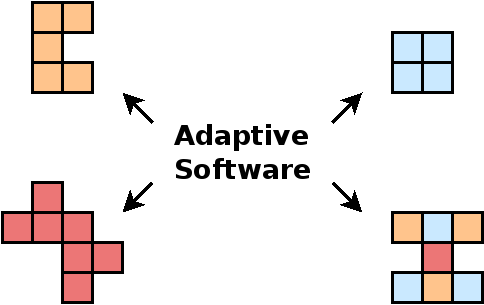
To continue the (mostly) international speakers colloquium series hosted at the Service Prototyping Lab at Zurich University of Applied Sciences, we invited Barbara Weber, Ronny Seiger and Martin Eigenmann from the ICS-HSG to give more insights into self-adaptive workflows and their applicability to large-volume applications such as neuro-physiological experiments. Apart from being unusual in having a neighbouring research group as guests, this colloquium was also coupled with mutual system demonstrations.
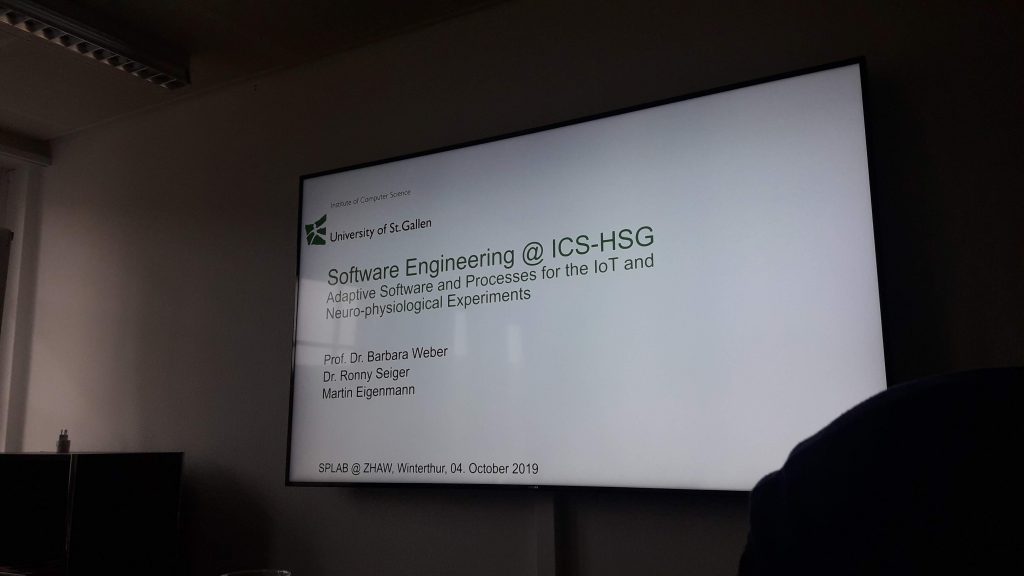
Ronny Seiger presented the PROtEUS workflow system which adaptively executes service tasks and human tasks, controlled by a MAPE-K loop which is making informed decisions based on the state of sensors. If, for instance, a health sensor leads to a suggestion of calling a doctor, but the suggestion is neither followed nor is it explicitly discarded, the adaptation logic assumes that a person is unable to respond and changes the workflow to follow the suggestion automatically. He also presented the architecture of a platform to handle neuro-SE experiments that involve online data streams in addition to offline data and will increase the reproducibility of such experiments.
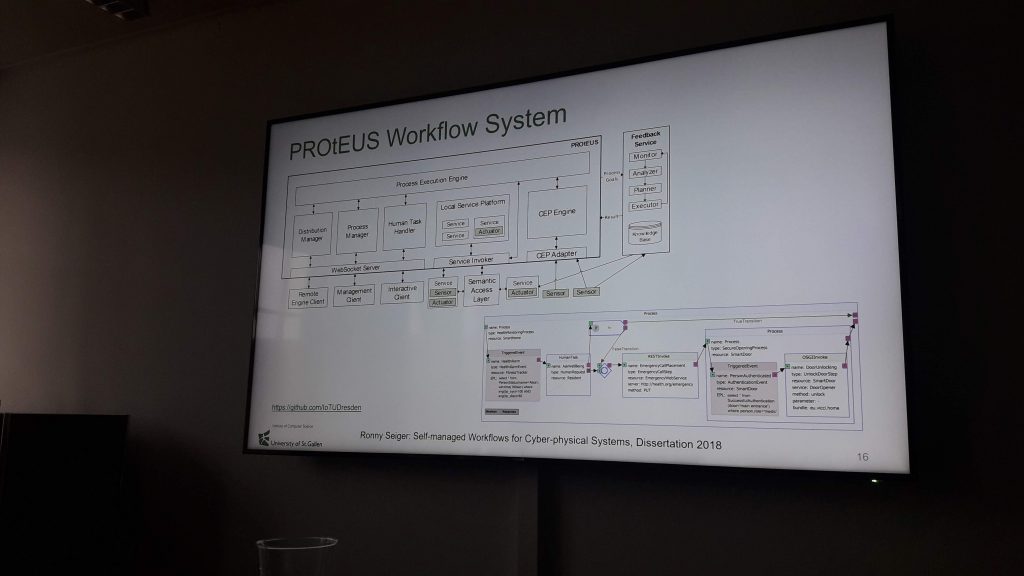
The associated demo included a broken light bulb whose task could be taken over by another nearby light bulb. Instead of requiring human supervision of the state of lighting or the bulb itself, the adaptation logic would assign the task to the second light bulb automatically.
From the SPLab side, demos on auto-scaling Knative based on Kafka message bus load and on running software artefact quality assessment tools were provided. We will report separately on these topics.
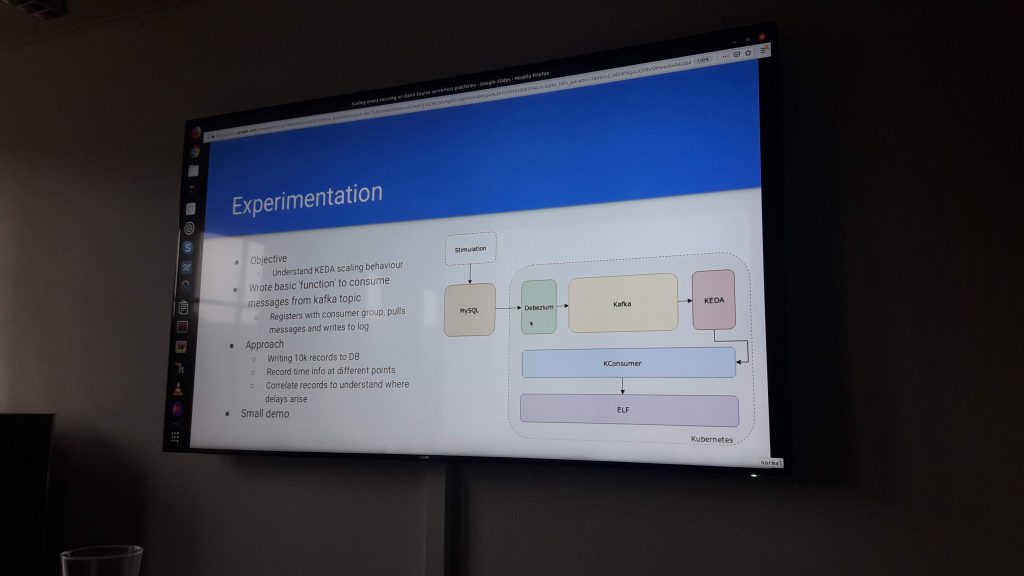
The technical discussion then evolved around messaging systems, serverless architectures, the need for scalability and the ways to support reproducible research. Moreover, a domain-specific discussion on best neuro experiments ensued. Users with cheap fitness trackers may for instance draw the wrong conclusions compared to a proper instrumentation in the right setting.
We thank the ICS researchers for having visited us and for having provided us with greater insights into adaptive systems and platforms.
